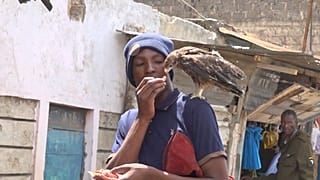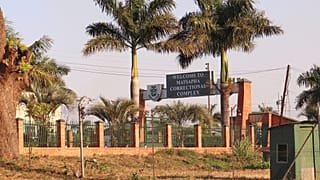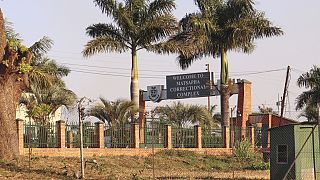Eswatini
The HIV pandemic still claims a life every minute. While progress has been made, there were 1.3 million new HIV infections last year and 630,000 AIDS-related deaths. Now unprecedented US funding cuts have torpedoed the HIV response in many countries.
Every day at the Luyengo Clinic in the small southern African country of Eswatini, about 350 patients living with HIV come to receive life-saving treatment. Dozens of babies are also tested for the virus. In all, some 3,000 people depend on these services.
Until recently, funding from the United States President's Emergency Plan for AIDS Relief (PEPFAR) covered 80 percent of Luyengo Clinic's costs. Now patients are worried about treatment shortages they fear could kill them.
Nompilo Mdluli, a young woman living with HIV in rural Eswatini, benefitted from a mobile clinic and health outreach. That's now been halted due to funding cuts.
"I am going to miss young peoople coming together and sharing ideas," Mdluli says, "especially the livelihood part and also having a mobile clinic come nearby your home just to make your referral for (HIV pre-exposure prophylaxis) PrEP and also free condoms. Those really helped Eswatini a lot."
Eswatini's Ministry of Health is working to make up the shortfall without impacting patients, says Khanyakwezwe Mabuza, Principal Secretary, Ministry of Health:
"We’re running around to say how can we ensure that those who are on treatment, they must remain on treatment and make sure that we don’t disrupt the services even if we don’t have the budget as I speak... But we need to look for money.”
Rolling back progress
Eswatini has one of the highest HIV prevalence rates in the world, with one in four people infected with the virus. New infections have dropped by more than 70 percent since 2010 and death rates have halved, thanks in part to the US funding about half of the country's AIDS programmes.
But without the money to finance those programmes, that progress could get rolled back very quickly, with far-reaching consequences.
"HIV knows no borders," says Nuha Cessay, UNAIDS country director in Eswatini. "New infections are likely to rebound, it means investments we have made putting people on treatment is going to be affected. It also means we will not be able to generate the strategic information that is needed to inform us in terms of where are the new infections taking place, who is being infected, why are they being infected and how many of them are getting infected. This the kind of value UNAIDS brings into the HIV response."
A new report from UNAIDS, 'AIDS, Crisis and the Power to Transform,' documenting the impact US funding cuts are having around the world, estimates that without further action, there could be an additional 6 million new HIV infections and 4 million AIDS-related deaths by 2029.












01:15
US pledges $2 billion to UN aid amid deep foreign assistance cuts
01:54
WHO chief looks back on a successful yet challenging 2025
01:56
Nigeria signs healthcare deal with US under new global health framework
01:05
Uganda to receive $1.7 billion of US funding under new health deal
01:43
US-Kenya $2.5B health deal targets HIV, Malaria and Polio
01:09
UNAIDS urges global unity in World AIDS Day call to action